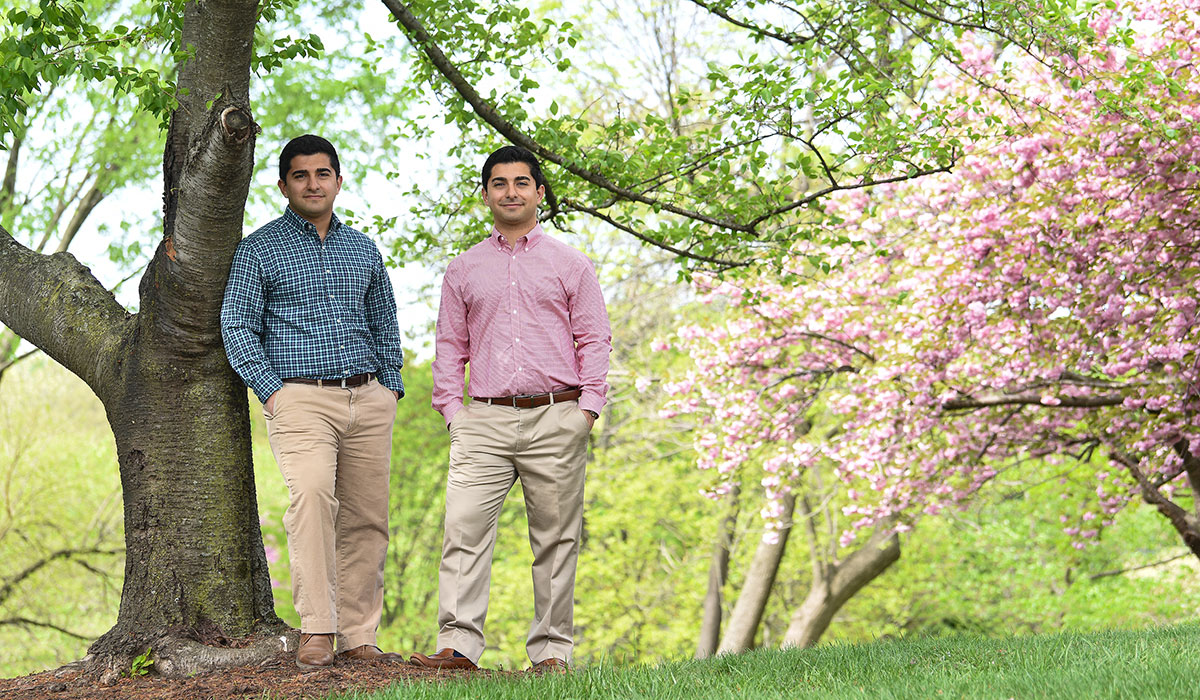

Can your calling in life be predestined? That might just be the case for Ben and Chris Rahimi. The brothers — 24-year-old twins who completed undergraduate and graduate studies in Catholic University’s biomedical engineering program in 2017 and 2018, respectively, and plan to study dentistry — definitely come by their talents naturally.
“I was born into it. My mom is a dentist,” said Ben, who seems to have engineering in his blood, too. “Growing up, I was fairly good at building things and fixing things. I got problem solving skills from my father, who’s a builder.”
The two spent a lot of time in their mother’s office when they were young — and not because their teeth were bad. They watched her work and got to know her clients, who in turn watched the boys grow into men. The family atmosphere taught them that communication is the key to reassuring clients who may be fearful about the experience.
“I’ve seen people over the years coming and going, leaving with smiles,” said Chris, who wants to follow his mother’s lead and take part in free or low-cost dental clinics for people who can’t afford regular check-ups. “My mother was my main inspiration, and dentistry gives me the opportunity to make an impact in my community.
After completing an accelerated master’s program last year, the two directed their energies toward applying to dental school.
“It’s very cutthroat, very competitive,” Ben said. They don’t need to worry about that anymore, since both were accepted at the University of Maryland’s dental program in Baltimore. They’ll be starting in the fall and are excited about the curriculum and the opportunities their studies will bring.
The first two years are purely academic, Chris explained, but after that, students begin working with actual patients.
“At that point, you start really getting hands on, working in clinics, doing pro bono cases, working with inner city populations,” Chris said. “On top of that, you can go on excursions to Jamaica or Belize to provide healthcare services to locals, especially up in the mountains. It's an integrated part of the curriculum and part of the job.”
Until classes start, the two are working and volunteering, teaching hands-on STEM experiments. Ben spends one day a week with a class of third grade girls at a school in Southeast D.C., engaging them in math and engineering.
“They ask me how I became a scientist, how I became an engineer, and I say I learned all of this from school, reading, and the internet. They’re surprised,” he said. “I tell them, you have all this power and knowledge. Now you have to channel this energy and grow.”